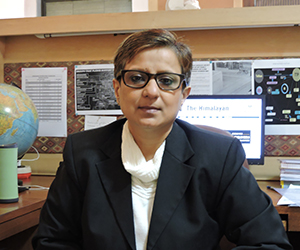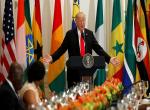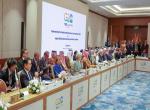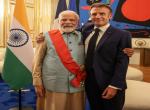Right in the midst of the then raging Sino-Indian stand-off at Doklam, the Nepalese Prime Minister Sher Bahadur Deuba paid a five day state visit to India from August 23-27, 2017; his first foreign trip after assuming the charge in May 2017. It was PM Deuba’s fourth visit to India as the Prime Minister of Nepal, including those made in his earlier stints as PM of the country. It was also the third by the Nepali Prime Minister to New Delhi over the last year and a half; K.P. Sharma Oli of Communist Party of Nepal-Unified Marxist Leninist (CPN-UML) visited India in February last, followed by Pushpa Kamal Dahal Prachanda of Communist Party of Nepal Maoist Centre (CPN-MC) in September 2016.
Deuba’s visit was seen by analysts as an opportunity for both New Delhi and Kathmandu to repair their relations after a period undue and unusual stress in bilateral relations, particularly during the tenure of K P Sharma Oli. This visit undoubtedly came at a time when both the countries were willing, indeed eager to mend fences and promote the time honoured and tested ties of bilateral solidarity. The visit also held extraordinary significance as it took place in the 70th year of establishment of India-Nepal diplomatic relations. Expressing satisfaction over the excellent state of India Nepal relations, the visiting Prime Minister appreciated the regular exchange of high-level contacts that contributed greatly to adding fresh momentum to our bilateral cooperation. Both the Prime Ministers also underscored the indispensability of democratic institutions through the pillars of peace, development and prosperity.
PM Modi and his visiting counterpart held comprehensive talks on all aspects of bilateral relations as was expected. However, what came as a pleasant surprise was the impromptu interaction between the two leaders immediately after the arrival of PM Deuba in New Delhi. No official clarification was available on this unusual development but it was strongly speculated that the then on-going Doklam crisis must have been the trigger. Be that as it may, the substantive parts of the official talks were summarized in the joint statement issued at the end of the visit, covering various aspects of bilateral relations, including security concerns, resolving bottlenecks hampering progress in the ongoing projects, post-earthquake reconstruction measures in Nepal, India assisted developmental projects, enhancing connectivity, and cooperation in oil and gas sectors etc.
On political issues, Prime Minister Modi appreciated Nepal’s effort in conducting local level elections successfully. Further, the progress made by Eminent Persons Group on Nepal-India Relations since February 2016 were also acknowledged. PM Deuba too referred to the process of holding elections and certain aspects of the process of implementation of the new constitution, particularly his assertion relating to the constitution amendment bill. This however, came in for criticism back home but need to be seen in the context of the deep political divide that still obtains on this issue.
Major issues/areas of cooperation agreed to by the two sides, as mentioned in the joint statement, are summarized below:-
• Both the Prime Minister’s expressed satisfaction on the functioning of the Oversight Mechanism which was established in 2016 and the efforts made through the mechanism in resolving the bottlenecks and expediting the ongoing projects under bilateral socio-economic development.
• India once again reiterated its commitment to work with the Nepalese govt. to expedite post-earthquake reconstruction projects in a time-bound manner. The identification of projects in the four sector for India’s re-construction assistance have been put in place. The projects fall under the US $ 750 million Line of Credit for post-earthquake reconstruction.
• The utilization of the two Lines of Credit of US $ 100 million and US $ 250 million for development of roads and power structure in Nepal were reviewed. PM Deuba welcomed the allocation of US $ 200 million for irrigation projects and US $ 330 million for development of road infrastructure from Line of Credit of US $ 550 million.
• To accelerate cross border connectivity, it was agreed to push for early completion of two ongoing cross-border rail link projects. a) Jayanagar-Bijalpur-Bardibas, and b) Jagbani-Biratnagar rail links. The desired rail links from Jayanagar to Janakpur and Jogbani to Biratnagar custom yard are likely to be completed by 2018.
• Agreement on early completion of the Field Location survey of (a) New Jalpaiguri to Kakarbhitta, (b) Nautanwa to Bhairahawa and (c) Nepalgunj Road to Nepalgunj have also been identified.
• The construction of the Integrated Check Post (ICP) at Biratnagar and operationalizing of ICP Birgunj by December 2017 were also taken up on the forefront. The urgency for early approval of Detailed Engineering Designs of ICP at Bhairahawa and Nepalgunj were underlined. Award of contract for 12 packages for 9 roads totaling about 240 Km under the Terai roads were appreciated.
• The Motihari-Amlekhgunj petroleum pipeline project has been assigned high priority. The Prime Ministers welcomed the decision to set up a Joint Working Group (JWG) on cooperation in oil and gas sectors which would consider advancing cooperation in areas such as (a) Construction of LPG pipeline from Motihari to Amlekhgunj, (b) Construction of National Gas pipelines from Gorakhpur to Sunwal, and (c) Assistance of IOCL for preparing DPR for extension of Petroleum Products pipeline from Amlekhgunj to Chitwan in Nepal.
The two Prime discussed the possibility and feasibility of further bilateral oneness on following projects which may be of immediate interest to Nepal:-
• Kushinagar-Lumbini-Kapilavastu and Bardibas-Birgunj Railways.
• Up gradation of Birgunj-Pathlaiya-Narayanghat and Butwal-Pokhara roads into Expressways.
• International Airport at Nijgadh.
• Motorable Bridges over Mahakali River
• Maitri Bridge at Birgunj-Raxaul border.
• Development of dry port at Dodhara Chandani.
• Development of a Special Economic Zone in Nepal.
• Establishment of a new 132 kV transmission line.
• Butwal (Nepal)-Gorakhpur (India) cross-border transmission line.
• Lumki (Nepal)-Bareilly (India) cross-border transmission line.
• The successful operationalization of Muzaffarpur-Dhalkebar, Kataiya Kushaha and Raxaul-Parwanipur cross border power-line was acknowledged. It was agreed that both sides will continue to take measures to operationalize all aspects of the Power Trade Agreement signed in 2014.
• Both sides appreciated the efforts of both the sides in preparing a Master Plan for the cross border interconnection for a period until 2035.
• In the health sector, India has identified a hundred 157 projects. These measures will surely go a long way in strengthening our bilateral ties.
• Completion of the Pancheshwar Multipurpose Project figured high on the Prime Ministerial agenda. PM Deuba reiterated Nepal’s commitment to address all pending issues on priority relating to 900 MW Arun-III and upper Karnali hydropower project. India also conveyed the finalization of Detailed Project Report for the construction of head regulator and link canal from Tanakpur Barrage to the Nepali side. Some reservations expressed on the idea of constructing a high dam over the Saptkoshi River. It was felt that all aspects of the proposed mega project should be studied in detail.
• The successful launch of the South Asia Satellite, a unique example of regional cooperation in space sector, and an initiative that would touch the lives of people in the region through space technology applications in the areas of telecommunication and broadcasting, tele-medicine, tele-education, e-governance, banking and ATM services, meteorological data transmission, disaster response and networking of academic and research institutions, was welcomed by the two sides.
Prime Ministers Modi and Deuba highlighted the importance of realizing the absolute potential of bilateral trade and investment. They welcomed the renewal of the India-Nepal Treaty of Trade and the Agreement of Cooperation between Government of India and Government of Nepal to Control Unauthorized Trade, in October 2016, for a further period of seven years. Nepalese side expressed concern over her growing trade deficit with India. Noting the current level of bilateral trade, the two Prime Ministers underscored the considerable potential to enhance the bilateral trade, which could be harnessed by addressing infrastructural deficiencies and trade restricting measures as well as by adopting trade facilitation measures for easier market access to agricultural and industrial products. New Delhi and Kathmandu thus agreed to take steps for early upgradation and operationalization of the settled trade points namely Dhangadhi-Gauriphanta, Guleria-Murthia, Jatahi-Pipraun and Pashupatinagar-Sukhiapokhri. The two sides also agreed that issues relating to impact of introduction of Goods and Service Tax in India on bilateral and transit trade be examined expeditiously. The two Prime Ministers emphasized the need for channelizing more direct investments from India into Nepal.
The two Prime Ministers appreciated the contributions made by the BP Koirala India-Nepal Foundation which successfully completed 25 years of establishment in December 2016. In same context, both the Prime Ministers emphasized the advantages of cooperation at regional and sub-regional level, including BIMSTEC and SAARC. As the current Chair, the Prime Minister of Nepal thanked Prime Minister of India for the BIMSTEC Leaders' Retreat hosted by India in Goa in October 2016 along with the BRICS-BIMSTEC Outreach Summit. Nepal reiterated its support for India's candidature for permanent membership of the UN Security Council.
Finally, recognizing that terrorism remains one of the most significant threats to peace and stability in the region, the two Prime Ministers reiterated their strong commitment to combat terrorism in all its forms and manifestations. They called on the international community for early finalization and adoption of a Comprehensive Convention on International Terrorism by the United Nations General Assembly (UNGA).
Agreements and Memoranda of Understanding signed during PM Deuba’s visit are as listed below:-
• MoU on Modalities for Utilization of India’s Housing Grant Component to support Reconstruction of 50,000 Houses.
• MoU on Implementation of the Grant Component of India’s Post-Earthquake Reconstruction Package in the Education Sector in Nepal.
• MoU on Implementation of the Grant Component of India’s Post-Earthquake Reconstruction Package in Cultural Heritage Sector in Nepal.
• MoU on Implementation of the Grant Component of India’s Post-Earthquake Reconstruction Package in the Health Sector in Nepal.
• Cooperation Agreement between Bureau of Indian Standards (BIS) & Nepal Bureau of Standards & Metrology.
• MoU on Drug Demand Reduction and Prevention of Illicit Trafficking in Narcotic Drugs and Psychotropic Substances and Precursor Chemical and Related Matters.
• MoU for construction of Mechi Bridge.
• MoU between Institute of Chartered Accountants of India and Institute of Chartered Accountants of Nepal.
Conclusions:
PM Deuba’s visit has been extremely significant for it reflected a changed political context. New Delhi and Kathmandu viewed strengthening of the democratic institutions as essential to ensuring Nepal’s smooth transition to democracy. Democratic institutions are also viewed as essential pre-requisites for peace, development and prosperity not only in Nepal but also in the regional context. Therefore in the coming elections, India would like to see the democratically inclined parties and their co-related principles and ideology gain a strong foot hold the given matrix in Kathmandu. Victory of any other ideology would mean not only the downfall of the egalitarian principles but also an installation of a potentially unfriendly forces gaining ground. Both the leaders strongly committed themselves to strengthening, bilateral ties, creating adequate space for mutual sensitiveness, initiating measures to eliminate procedural delays that have marred effective implementation of bilateral projects. The overall focus seems to be shifting to the important aspect of ensuring delivery against promises made. This is particularly important in the context of China’s gigantic schemes under the Belt Road Initiatives (BRI) designed to change the geo-politics of South Asia.
It is also impossible to miss the significance of the timing of PM Deuba’s visit for it came in the midst of the then prevailing standoff at Doklam. Deuba visit also served as a platform to repair our relationship post 2015 blockade by the Madhesis which was politically exploited by the then government to drive a wedge in the bilateral relations. Analysts believe that the meeting between the two leaders will effectively contribute in a positive way the ongoing process of elections that would lead to Nepal’s smooth transition to inclusive democracy in a peaceful manner.
Image Source: https://telanganatoday.com/pm-deubas-visit-india-nepal-ink-eight-pacts











Post new comment